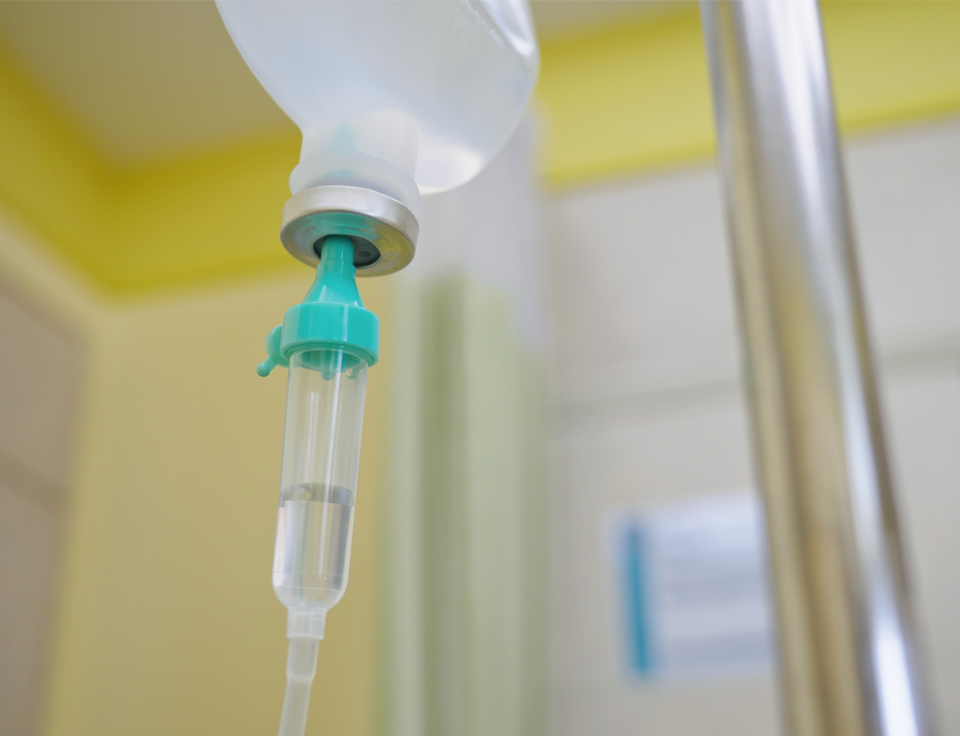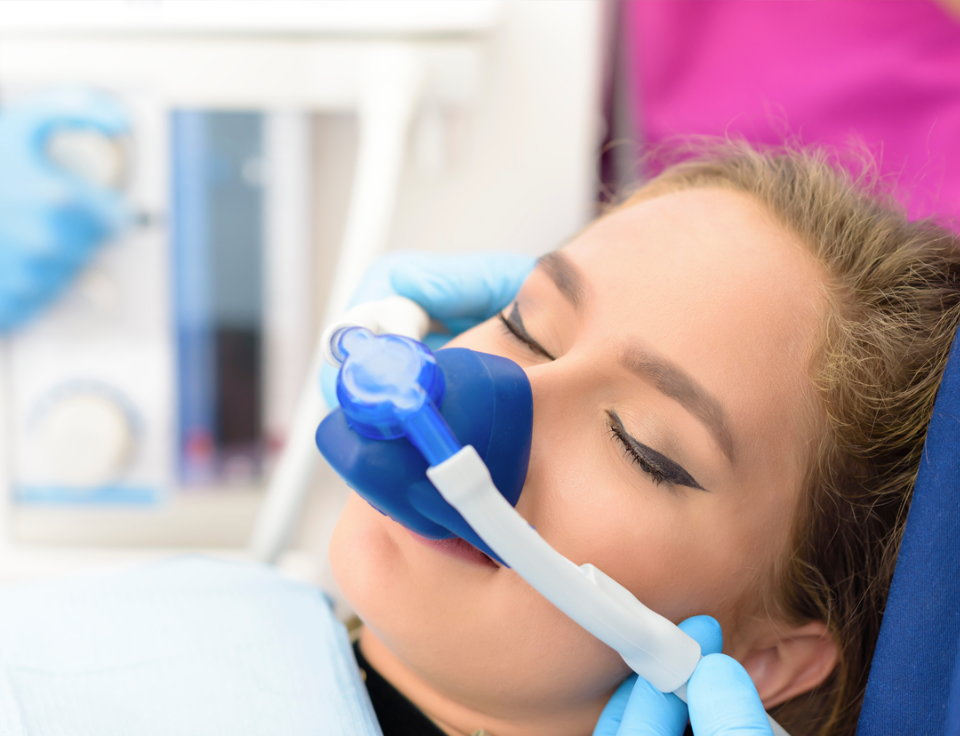IV Sedation Dentistry
Experience relaxation, comfort, and pain-free dental care with sedation!
Perfectly Safe
One Visit
Sleep & Smile
We offer IV sedation for our patients at Island Dental. This form of sedation is sometimes called ‘twilight’ or ‘sleep’ dentistry. When we administer this sedative, it helps our patients to relax and feel at peace. If you are dealing with severe anxiety, sedation dentistry might be a great option. Some benefits of IV sedation are as follows:
- It works quickly, and you feel no pain at all during the procedure
- We Monitor Your Vitals And Easily Adjust The Dosage
- It Creates A Long Period Of Amnesia, So You Won’t Remember The Procedure When You Wake Up
- We Can Perform Multiple Procedures With Only One Appointment
- Get all your work done and as little as one visit with IV sedation
- The best experience you’ll ever have in a dental office
Island Dental Associates works with a team of board-certified anesthesia specialists to provide the most accessible and safest dental experience possible.
If you have concerns or think sedation dentistry may be a good option, talk to one of our care experts to find the best solution for a comfortable and stress-free dental experience.

IV SEDATION
IV sedation dentistry is ideal for patients with severe dental phobias or anxieties. It can help them overcome their fears and receive the care they need to maintain good oral health.
Another benefit of IV sedation dentistry is that it allows dentists to perform longer and more complex procedures in a single visit. Patients requiring multiple dental treatments can now complete them in one appointment, saving them time and money.
nitrous oxide
Laughing gas offers a fast-acting and effective way to ensure a calm, comfortable dental experience. It works quickly to relax patients, allowing their procedures to be performed with ease and minimal stress.
Don’t let fear hold you back from achieving a healthy and beautiful smile.

We Can Utilize Sedation Dentistry For Any Procedure,
Including Implants, Extractions, And Cosmetic.
How Sedation Denistry Works
Prepare For Anesthesia
Preparing for dental anesthesia is crucial to ensure a safe and comfortable experience during your procedure. Before your appointment, discussing your medical history and any medications you are taking with your dentist is essential. This includes disclosing allergies and any previous reactions to anesthesia. Your dentist may provide specific instructions, such as fasting for a certain period before the procedure, especially if you will receive sedation. Arranging for a responsible adult to accompany you is also important, as you may feel drowsy or unsteady after the procedure. Additionally, wearing loose, comfortable clothing can help you relax. By following these guidelines and communicating openly with your dental team, you can ensure a smooth experience with dental anesthesia.
You Will Also Need Someone To Drive You Home After Your Procedure.
During anesthesia
Patients are carefully monitored during anesthesia to ensure their safety and comfort throughout the procedure. Anesthesia works by temporarily blocking pain signals to the brain, allowing dental procedures to be performed without discomfort. Whether local, sedation, or general anesthesia is used, the type and dosage are tailored to the patient’s needs. Patients may feel relaxed or even sleep through the process, depending on the level of anesthesia. Afterward, recovery is closely supervised, ensuring the patient wakes up smoothly with minimal side effects. Proper administration of anesthesia ensures a safe, pain-free experience for every patient.
Emergency protocols
Emergency protocols during anesthesia are crucial for ensuring patient safety in the rare event of a complication. Our dental teams are trained to recognize early signs of anesthesia-related issues, such as allergic reactions, breathing difficulties, or drops in blood pressure. They are equipped with the necessary tools and medications to respond quickly, including oxygen, emergency drugs, and defibrillators. Regular monitoring of vital signs during the procedure helps the team detect abnormalities. In an emergency, protocols include stopping the anesthesia, stabilizing the patient, and administering life-saving measures. Coordinated, prompt action ensures that emergencies are handled swiftly and effectively.
Patient safety
At Island Dental Associates, patient safety is our top priority during anesthesia. We use the latest state-of-the-art equipment to monitor vital signs continuously throughout your treatment, ensuring optimal care at every step. Our team of experienced dentists and certified anesthesiologists follow strict safety protocols to tailor the anesthesia to each patient’s needs. Whether it’s local anesthesia, sedation, or general anesthesia, we take every precaution to minimize risk and ensure your comfort so you can feel confident and safe throughout your procedure.
IV Sedation
IV sedation provides a deeper level of relaxation during dental procedures, making it an ideal option for patients with dental anxiety or those undergoing more complex treatments. Administered through a small needle in the arm, IV sedation works quickly and is carefully monitored by our dental team throughout the procedure. Unlike other forms of sedation, IV sedation allows for precise control over the level of sedation, keeping you relaxed and comfortable while still conscious. Many patients report little to no memory of the procedure, making IV sedation a great choice for a stress-free dental experience.
Post sedation
After sedation, it’s important to follow specific post-care instructions to ensure a smooth recovery. Depending on the type of sedation used, you may feel drowsy or groggy for a few hours, so it’s recommended to rest and avoid driving or operating machinery. It’s also important to have someone accompany you home, especially if deeper sedation or general anesthesia is used. Drinking plenty of water and sticking to soft foods for the first few hours can help your body recover. Most patients feel back to normal within a day, but if you experience prolonged dizziness, nausea, or discomfort, contact your dentist immediately for further guidance.
You Will Also Need Someone To Drive You Home After Your Procedure.
Meet Our Anesthesiologist
Gain confidence with a dedicated care team by your side.

Kevin Glassman, MD
Board Certified Anesthesiologist, Fellow of the American Society of Anesthesiology
FAQs - Sedation Dentistry
Sedation dentistry involves using medication to help patients relax during dental procedures. It is often used for patients who experience dental anxiety, have a low pain threshold, or need extensive work done in a single visit.
There are several levels of sedation used in dentistry:
- Minimal sedation: You are awake but relaxed, often achieved with nitrous oxide (laughing gas).
- Moderate sedation: Also called “conscious sedation,” where you may slur your words and not remember much of the procedure. This is commonly done with oral medications.
- Deep sedation: You are on the edge of consciousness but can still be awakened.
General anesthesia: You are completely unconscious during the procedure.
Sedation dentistry is ideal for patients who:
- Have severe dental anxiety or phobia
- Have a low pain threshold
- Have a strong gag reflex
- Need complex or multiple dental procedures
- Struggle to sit still for extended periods
Yes, sedation dentistry is generally safe when administered by trained professionals. Before the procedure, your dentist will review your medical history and monitor you closely during the treatment to ensure safety.
Nitrous oxide is a mild sedative that helps patients relax during dental procedures. It is administered through a mask that delivers the gas, which you inhale. The effects wear off quickly, allowing you to resume normal activities shortly after the procedure.
The duration of sedation depends on the type used:
- Nitrous oxide: Wears off within minutes after the mask is removed.
- Oral sedation: Can last a few hours, with lingering drowsiness after the procedure.
IV sedation or general anesthesia: Effects may last for several hours, and you will need someone to drive you home.
Sedation dentistry is designed to reduce anxiety and discomfort. Depending on the type of sedation and your procedure, you may also receive local anesthesia to numb the treatment area, ensuring that you remain pain-free throughout the procedure.
Your dentist will provide specific instructions based on the type of sedation you’ll receive. You may need to avoid food and drink for several hours before your appointment. If you’re receiving oral or IV sedation, you should also arrange for someone to drive you home.
It depends on the level of sedation. With minimal or moderate sedation, you will be awake but relaxed. Deep sedation or general anesthesia will put you in a sleep-like state where you won’t be aware of the procedure.
Sedation dentistry may be covered by dental insurance if it’s deemed medically necessary, such as for patients with severe anxiety or certain medical conditions. However, coverage can vary, so it’s essential to check with your dental provider and insurance company beforehand.
Side effects are typically mild, including drowsiness, dry mouth, nausea, or a slight headache. These effects usually wear off within a few hours, but you may need someone to accompany you home, especially if you’ve had oral or IV sedation.
Yes, sedation dentistry is available for children who are anxious, have difficulty sitting still, or need extensive dental work. Nitrous oxide (laughing gas) is commonly used for children as it is safe and wears off quickly.
Recovery times vary depending on the type of sedation. Nitrous oxide allows for a quick recovery, while oral or IV sedation may require several hours before the effects completely wear off. It’s best to rest after the procedure and avoid driving or operating heavy machinery.
For oral and IV sedation, you may be asked to refrain from eating or drinking for a certain period (usually 6-8 hours) before the procedure. Your dentist will give you specific instructions based on the sedation type.
If you undergo moderate or deep sedation, you may have little to no memory of the procedure, which can be a relief for patients with dental anxiety. With minimal sedation like nitrous oxide, you’ll remain fully conscious and likely remember the experience.


